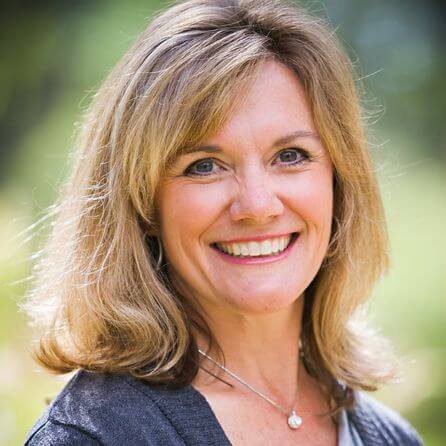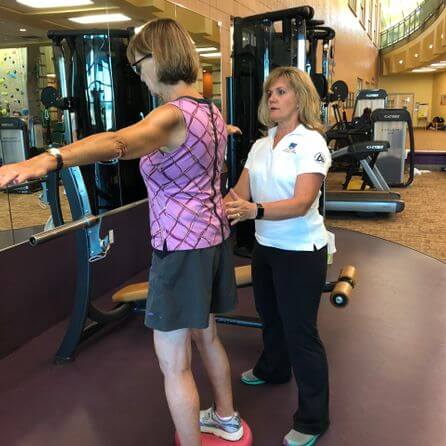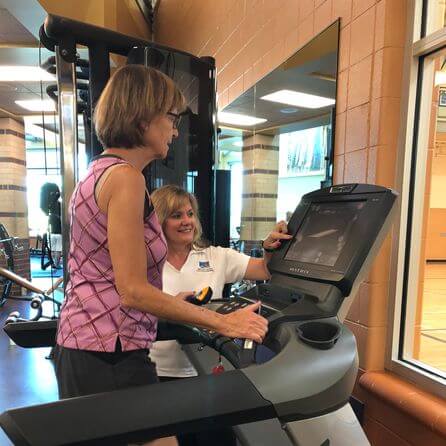We’re continually blown away by the fascinating people we meet in our salon and MedSpa each and every day. Occasionally we jump into action and share the stories of our guests and partners, whose professional ventures or personal passions are just too interesting or important to our community to keep to ourselves.

Recently, Grand sat down to talk with our friend (of 20+ years!) Lisa Walther, who is a two time cancer survivor. After Lisa’s second diagnosis, she founded LivFit, a private training practice focused on helping people attain their personal health and fitness goals. With her Certifications as a Personal Trainer and as a Cancer Exercise Trainer, Lisa and LivFit specialize in treating cancer survivors through personal and group training to enhance overall strength, cardiovascular fitness and flexibility, while building healthy personal habits and behaviors throughout a cancer survivor’s lifetime.
——-
1. When were you diagnosed and what was your diagnosis?
I am a 2-time Breast cancer survivor. First diagnosis was in 1998 with DCIS Breast Cancer, and the second time was Breast cancer again in October of 2016.
2. Do you know how long you were living with cancer before you were diagnosed?
No one really knows this, because most everyone has cells in their body that could eventually mutate and lead to cancerous tumors. My original tumor was very small and unnoticeable to me.
3. Were there any signs prior to being diagnosed?
None whatsoever! I was shocked, not only because I felt “fine” but also because I was only 30 years old and had just had my first child. My doctor found it during a routine breast check and thought at first that it was just a clogged “milk duct” from breastfeeding. They did an ultrasound, then followed up with my first mammogram, and eventually two biopsies before they diagnosed me with stage 0-1 cancer.
4. What Treatments did you go through?
First Diagnosis and Treatment:
I had to have multiple lumpectomies because they couldn’t get clean margins, followed by 6 weeks of radiation. I was supposed to be clear, but then just 6 months later when they did a follow-up mammogram they could see the cancer cells still, so one year after my initial diagnosis I had a full mastectomy with TRAM flap reconstructive surgery. After completing the surgery, they confirmed my cancer to be stage 1, found that my lymph nodes were not affected (although they took over 19 out) and so I didn’t have to have chemotherapy but after I recovered and did PT I began a 5 year regimen of Tamoxifen.
Second Diagnosis and Treatment:
I had been having routine mammograms for 20 years with follow-up MRI’s as necessary. In 2013 I started having questionable mammo/MRI results but the follow-up biopsies were shown to be benign each time. In 2016 the biopsy finally confirmed what the original MRI was showing and they found the tumor cells. I was diagnosed in the other breast with stage 1-2 cancer and underwent a second mastectomy and reconstructive surgery, this time with an implant. No radiation or chemo to follow because there was no lymph node involvement.ss
5. How did you overcome your fears (if any) of Treatments/Side affects?
I did my best to take each day one day at a time. I know that not everyone is affected the same way by drugs, so I tried to stay calm and just experience the side effects as they came. Tamoxifen wasn’t fun, it put me into pre-menopause, but was only temporary until I completed the regimen. I was even able to get pregnant and have two more beautiful babies after my first diagnosis. Radiation wasn’t bad, but I did get a pretty bad burn so they decided not to do the extra boost at the end. I recovered fine from that too. The worst part for me was recovering physically from the surgeries–there were so many, and I’m a pretty active and fit person. I didn’t have anyone to turn to to find out how to get my body safely back into shape.
6. Did you join any support groups? Did they help?
When I was first diagnosed, there were no survivor groups for young women, although there are many more now since more and more women are being diagnosed early. So, I just kept going to work each day and taking care of my family and my kids which kept my mind off of the pain and sadness and frustration. Having a reason to get up every day and get to work helping others took my mind off of my ailments.
7. Now that you are a survivor, what would you do differently (if anything) while going through diagnosis/treatments?
I am now a Certified Cancer Exercise Trainer, and I would have found someone like me to help me safely and gradually regain my strength and flexibility. I wouldn’t have changed anything else though, I’m glad that I continued to work and lead my life as normally as possible.
8. Do you live your life differently now?
Yes, I definitely live each day to the fullest, take care of myself and try to avoid unnecessary sadness and worry. You never know when something will come along and turn your life upside down, so enjoy every minute and don’t waste time fretting over the small stuff. Also, be tough. It doesn’t help to wallow in sadness or feel sorry for yourself–just makes you feel worse! I’m so thankful for my family and close friends who supported me through the tough times and I try to give that back each and every day.

9. When did you start your personal training business?
I’ve been a personal trainer since 2008, but got my Cancer Exercise Trainer certification in 2017 after my second diagnosis. I used the time that I had to be out of work recovering from surgery to study and prepare for the new certification. I love helping others who are going through similar life circumstances, watching them regain confidence and strength and have the power and endurance to keep going even when they feel pretty bad or are worried about the future.
10. What does your business entail?
I have a multi-faceted approach to the cancer exercise training. Clients can meet me during any point of their survivorship, and I can train them one-on-one, in a small group setting, or in my full blown cancer exercise class. No matter what type of training they prefer I can meet them where they are and help them to reach their goals. I do a thorough assessment of their abilities in the areas of strength, flexibility, fitness, and cardio health and endurance, and then I put together a plan that will help them improve in the areas that they need to work on to reach their goals.
11. Is having a strict diet important when going through treatment?
Diet does have effects on both physical and mental health when going through treatment, and eating the right kinds of foods can both fuel the body as well as fight off some side effects of the drugs such as nausea and fatigue.

12. What’s it like helping others go through the exact same thing you once went through?
Although everyone is different and no one really has the exact same symptoms or reactions to treatments, I really do understand what people mean when they say “I’ve never felt like this before,” or “I’m so tired I just can’t move” or whatever. The stress and fatigue is real and I totally get that.
13. What other wisdom can you share with us that you’ve gained through your personal experience and through your business?
It’s very important to stay fit and healthy throughout your life, and that’s no different when you’re going through something like cancer. However, the way you do it varies greatly because of the effects of the disease and treatments. I can safely and healthfully help others work out, feel good and regain fitness while avoiding the pitfalls that sometimes come with working out either too little or too much, or going too fast or too slow.
14. Any advice to those battling cancer and also to survivors?
Hang in there! Mental and physical states of well being are connected, and fitness and health can enhance both of those when done in the right way.
—–
If you, or someone you know would like more information or would like to get in touch with Lisa, you can contact her through the links/emails below:
– LivFit website: www.Livfitlife.com
– LivFit email: Lisa@Livfitlife.com | Class Email lwalther@broomfield.org
– For more information or to register for the Cancer Exercise Fitness for Life Program, visit: www.B-REx.com and search “Cancer Exercise Training Program”


